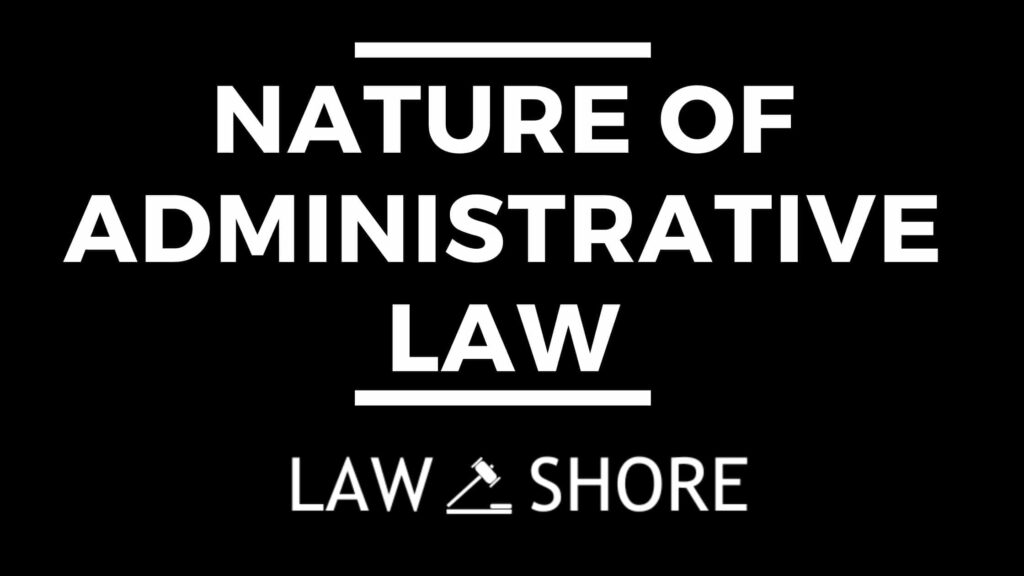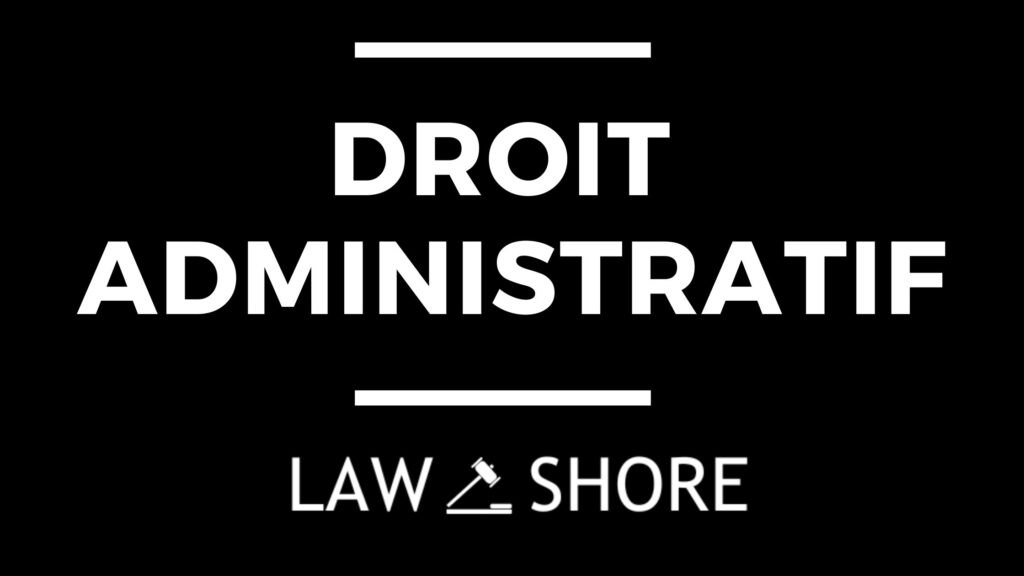Nature of Administrative Law
Table of Contents
ToggleNature of Administrative Law
Multifaceted Nature
Administrative law has both procedural and substantive aspects, governing how public authorities act and make decisions. It provides the legal framework for the functioning of government agencies, regulatory bodies, and local councils.
Legal Framework for Public Authorities
It ensures that public authorities, such as government agencies and other public entities, act within the law and respect individual rights, protecting citizens from arbitrary actions by the state.
Focus on Executive and Administrative Functions
Administrative law is primarily concerned with regulating the executive and administrative functions of government, focusing on the implementation of laws and policies, rather than the creation of laws (legislative functions) or their interpretation (judicial functions).
Dynamic and Evolving Nature
It adapts to the changing needs of society and the increasing complexity of governance, responding to new challenges and expanding to cover diverse areas like environmental protection, social welfare, and public health.
Intersection with Other Fields of Law
Administrative law often intersects with constitutional law, human rights law, and international law, creating a complex web of legal principles that guide how administrative decisions are made and enforced.
Object of Administrative Law
The primary object of administrative law is to regulate the powers and functions of administrative agencies and ensure that they operate within the legal framework established by the legislature and the constitution. The object of administrative law can be broken down into several key aspects:
Control of Discretionary Power:
Administrative agencies often have discretionary powers, which give them the flexibility to make decisions in complex and evolving situations. The object of administrative law is to ensure that such discretionary powers are not exercised arbitrarily or in an unjust manner. It provides mechanisms for judicial review, where courts can examine the legality, reasonableness, and fairness of decisions made by public authorities.
Protection of Individual Rights:
One of the core objects of administrative law is the protection of the rights and interests of individuals who are affected by administrative decisions. This is achieved by providing avenues for individuals to challenge unlawful or unfair actions taken by public authorities, such as through appeals, complaints, or judicial review. Administrative law ensures that citizens have access to fair procedures and remedies in case they are adversely affected by governmental decisions.
Transparency and Accountability:
Administrative law seeks to promote transparency and accountability in the actions of public officials and agencies. It establishes procedures for decision-making, including public hearings, publication of decisions, and reporting requirements, which allow citizens to scrutinize the actions of government bodies. This contributes to the overall legitimacy of administrative decisions and enhances public trust in governmental institutions.
Efficiency in Public Administration:
Administrative law also aims to improve the efficiency of public administration by establishing clear rules and procedures for decision-making. This helps prevent delays, errors, and inconsistencies in the application of the law. In this regard, administrative law serves to streamline the functioning of government agencies, making them more responsive to the needs of society.
Purpose of Administrative Law
The purpose of administrative law can be understood from both a functional and a normative perspective. It has practical objectives, such as regulating governmental action, ensuring legal compliance, and protecting the rights of individuals. It also serves broader societal goals related to good governance, justice, and fairness.
Ensuring Rule of Law:
The fundamental purpose of administrative law is to ensure that government action is carried out according to the law. It prevents the arbitrary exercise of power by requiring administrative decisions to be based on legal norms, principles of fairness, and transparency. Through mechanisms like judicial review and oversight, administrative law holds public authorities accountable and ensures that their actions comply with constitutional and statutory requirements.
Promoting Fairness and Justice:
Administrative law aims to promote justice by ensuring that decisions made by public authorities are fair and reasonable. This includes safeguarding against discrimination, bias, or undue influence in the decision-making process. By providing individuals with the right to challenge decisions and seek redress, administrative law helps to ensure that citizens are treated equitably in their dealings with the state.
Balancing Flexibility with Accountability:
Administrative agencies need a certain degree of flexibility to adapt to changing circumstances and address complex issues. Administrative law seeks to balance this need for flexibility with the requirement for accountability and transparency. It ensures that agencies exercise their powers within the boundaries of the law and that they do so in a manner that is consistent with principles of justice and fairness.
Facilitating Public Participation:
Administrative law also facilitates public participation in decision-making processes. It establishes mechanisms for public consultation, hearings, and submissions, allowing citizens to voice their opinions on matters that affect them. This enhances democratic governance by ensuring that administrative decisions reflect the interests and concerns of the public.
Ensuring Effective Governance:
At a broader level, administrative law serves the purpose of ensuring that the government can effectively and efficiently carry out its functions. By providing a structured framework for decision-making and dispute resolution, administrative law helps to prevent chaos or inefficiency in public administration. This is crucial for the effective implementation of public policies, which in turn contributes to the well-being of society as a whole.
Conclusion
In conclusion, administrative law is a vital area of legal theory and practice that plays a central role in modern governance. Nature of Administrative Law is characterized by its focus on the regulation of governmental agencies and the protection of individual rights. The object of administrative law is to ensure that administrative authorities act within the law, maintain accountability, and protect the rights of citizens.
Its purpose is to uphold the rule of law, promote fairness and justice, balance flexibility with accountability, facilitate public participation, and ensure effective governance. As the scope of government functions continues to expand, the importance of administrative law in maintaining good governance and protecting individual rights will only continue to grow.
Also, Check Out Other Topics in Administrative Law:
- Introduction and Scope of Administrative Law
- Droit Administratif
- Ombudsman in Administrative Law
- Promissory Estoppel in Administrative Law
- Public Corporation in Administrative Law
- Reasons for Growth of Administrative Law
- Doctrine of Separation of Powers in Administrative Law
- Doctrine of Ultra Vires in Administrative Law
- Whistleblowing in Administrative Law
- Red Light and Green Light Theory of Administrative Law
- Sub Delegation in Administrative Law
- Delegatus Non Potest Delegare
Explore Law Shore: law notes today and take the first step toward mastering the fundamentals of law with ease.

After Completing my LLB hons, I started writing content about legal concepts and case laws while practicing. I finally started Law Shore in 2024 with an aim to help other students and lawyers.



